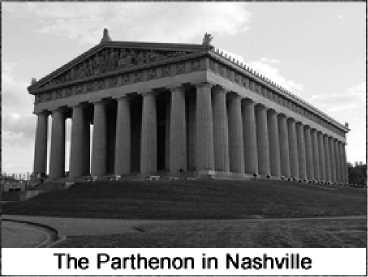American history did not occur in a vacuum. Thousands of years of human history preceded the discovery and colonization of the North American continent, and much of that prior history had a direct or indirect bearing on how this nation was formed. Some historians view American history as an extension of the history of Europe, or of the history of the "Western world." On the other hand, some claim that American history tells a tale that has no real parallel in the histories of other nations, even though Americans have much in common with

Other peoples. That view is sometimes referred to as "American exceptionalism," the idea that America's history is unique. Both views have some merit, but the important point to remember is that Americans sometimes fail to see themselves in their proper relationship to the rest of the world, often at their own peril. In other words, we are not alone.1
As we shall see, American history has strands that find their roots in the ancient worlds of Greece and Rome. Indeed, the "American Empire" has been com-pared—for better or worse—with the Roman Empire, and much of our political philosophy, as well as our literary and social concepts, can be traced to the ancient Greeks. The scientific discoveries associated with the Renaissance were frequently based in the work of Muslim scholars and historians, who kept classical ideas of the ancient world alive during Europe's so-called Dark Ages. The advances of the Renaissance led in turn to the discovery and exploration of new worlds, of which our ancestors were the beneficiaries.
When the Europeans left their homes to come to America they did not leave everything behind, but brought with them their religions, their cultural ideas, their values and concepts of justice and freedom. They named their colonies, cities, towns, and villages after their Old World homes and in some measure tried to recreate them on virgin soil. For reasons we will discuss later, that attempt at re-creation was futile if not actually undesirable, for the movement to the New World was inevitably a transforming experience. But the colonizers felt their roots deeply, and those roots persisted in influencing their decisions for generations.
Thus American history was shaped in part by strong currents that go back hundreds or even thousands of years. While the investigation of all that prehistory is essential for a full understanding of the modern world, most of it necessarily lies beyond the scope of this basic course. No matter how much we read or study, we are never capable of seeing more than a small portion of the great panorama that is the history of the United States, which, no matter how sharp our focus, is just a small part of the greater history of the world.
Although America is necessarily connected with the rest of the world in profound ways, for significant periods in American history events in this country occurred without being influenced from without. The colonists who arrived here in the 17th century, for example, were largely untouched by events occurring elsewhere except as they stimulated further emigration from Europe. In the 18th century, however, a series of dynastic wars among the European powers were often played out on the battlefields of North America. In the latter decades of the century, the influences of the American and French revolutions were felt strong-strongly on both sides of the Atlantic.
Later, as America filled up its frontiers, 19th-century Americans went about their business without much reference to the rest of the world, except, of course, for the influence of millions of refugees and immigrants who poured in through Ellis Island and other ports in the latter decades. Following the defeat of Napoleon at Waterloo in 1815, the European world was relatively free from conflict until 1914, a period known as the "Hundred Years' Peace." During that time America was relatively untouched by major events beyond our shores. Eventually, perhaps inevitably, America was dragged into conflicts with foreign powers, but those periods were typically followed by periods of withdrawal—or isolation, as it is sometimes called. It was only during the 20th century, beginning with World War I, that the United States became a major player on the international scene. Since the end of World War II America has been a dominant force in international affairs.
To go back to our origins, however, we may start with the proposition that American history did not begin with Jamestown, nor the Spanish settlement of North America, nor Columbus, nor even with the arrival of the Native Americans. For America is a Western nation, a nation whose roots lie deeply in Europe, albeit with powerful strains of Native American, African, and Asian cultures mixed in. America is an outgrowth of the evolution of European society and culture. From our politics to our religion to our economic and social behavior, we follow patterns that emerged over time from the ancient civilizations of the Western world— Greece, Rome, the Middle East, and the barbarian tribes that ranged across northern Europe before the rise of the Roman Republic and the Greek city-states.
Our principal religion is Christianity. Our drama is tinged with the influence of Greek tragedy. Our laws have grown out of the experiences of the Roman Republic, the Greek city-state and English common law. Our philosophy is heavily derived from Plato and Aristotle, and our science and mathematics also stem from the ancient world, often via Islamic and African scholars who picked up long-lost threads and wove them into new shapes that were embraced by Europeans during and after the Renaissance. Those developments in science and mathematics made possible the great age of exploration, which led to the discovery of America (or "rediscovery" if you prefer) by Columbus and his successors.
Following are ways in which the pre-Columbian world touched American history:
• Religious: The Judeo-Christian heritage of America is strong and still has enormous influence over our attitudes and beliefs. The Crusades, the Reformation, and the entire religious history of Europe are part of the background of America. Our religious heritage helps determine our relationships with the rest of the world.
• Political: Early concepts of democracy were Greek—the funeral oration of Pericles from Thucydides could be used at a present-day 4th of July celebration. The Roman Republic was the last great republic before the United States. The founding fathers were aware of that history and used it in making their revolution and writing our Constitution.
• Philosophical: As Alfred North Whitehead remarked, "The safest general characterization of the European philosophical tradition is that it consists of a series of footnotes to Plato." In other words, our ideas of self, society, and government, and the nature of our universe, have roots in ancient and medieval philosophies.
• Cultural: Our poetry, drama, music, literature, and language are all part of the Western European heritage. We formed our own culture, but it was informed by all that had gone before.
• Economic: From mercantilist beginnings America became the most successful capitalist nation in the history of the world, partly because of our adoption of the Protestant (Puritan) work ethic and the notion that God helps those who help themselves. Banks, publicly owned stock companies, corporations, insurance companies, and other economic enterprise systems had their roots in Europe, but were refined and expanded in America.
In beginning our study of American history, then, it is important to enter it with an open mind and a broad vision. This introductory text of necessity covers only the surface of America's past. As one delves deeper into the course our nation has taken from its origins to the present day, one's focus must narrow. More advanced courses in history dig deeper into history's different components. Many hundreds of historical works cover specific events and individuals in great detail. Political figures like Washington, Jefferson, Lincoln, Wilson, and both Roosevelts have attracted dozens of fine authors, as have inventors, scientists, artists, athletes and countless other figures. The American Civil War alone has bred tens of thousands of books, and they are still coming out. In studying history we quickly realize that the overall picture is even larger than it may at first seem; in our first journey through the past we will leave out many details. This is just the beginning.




 World History
World History









